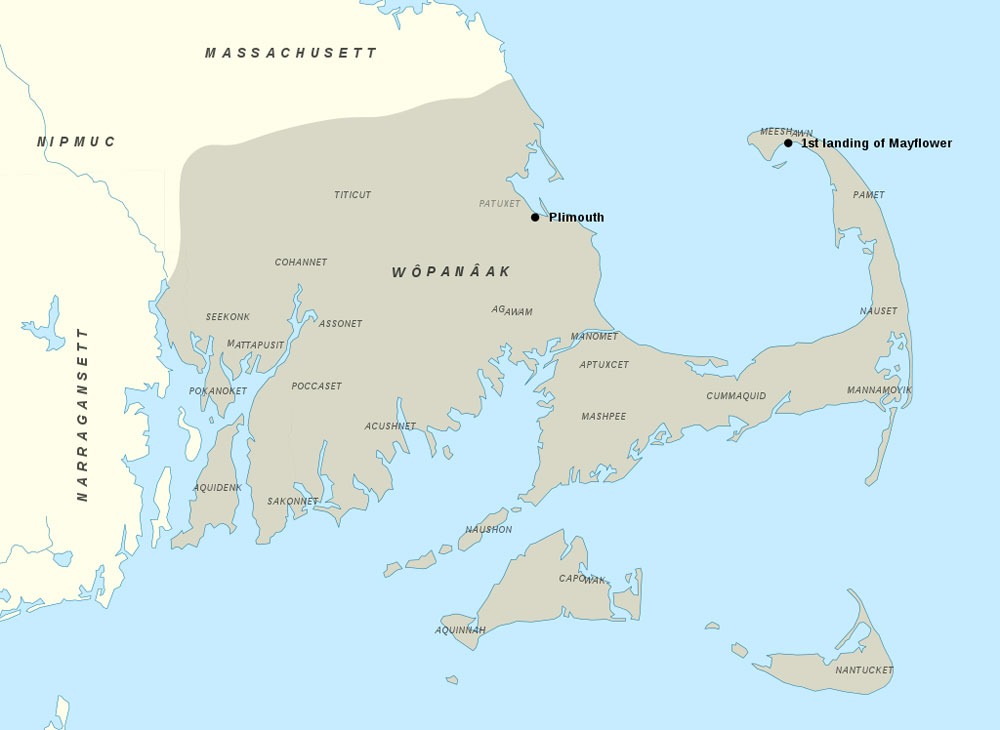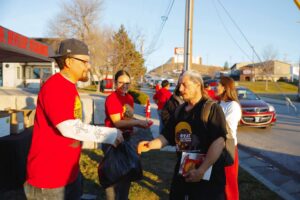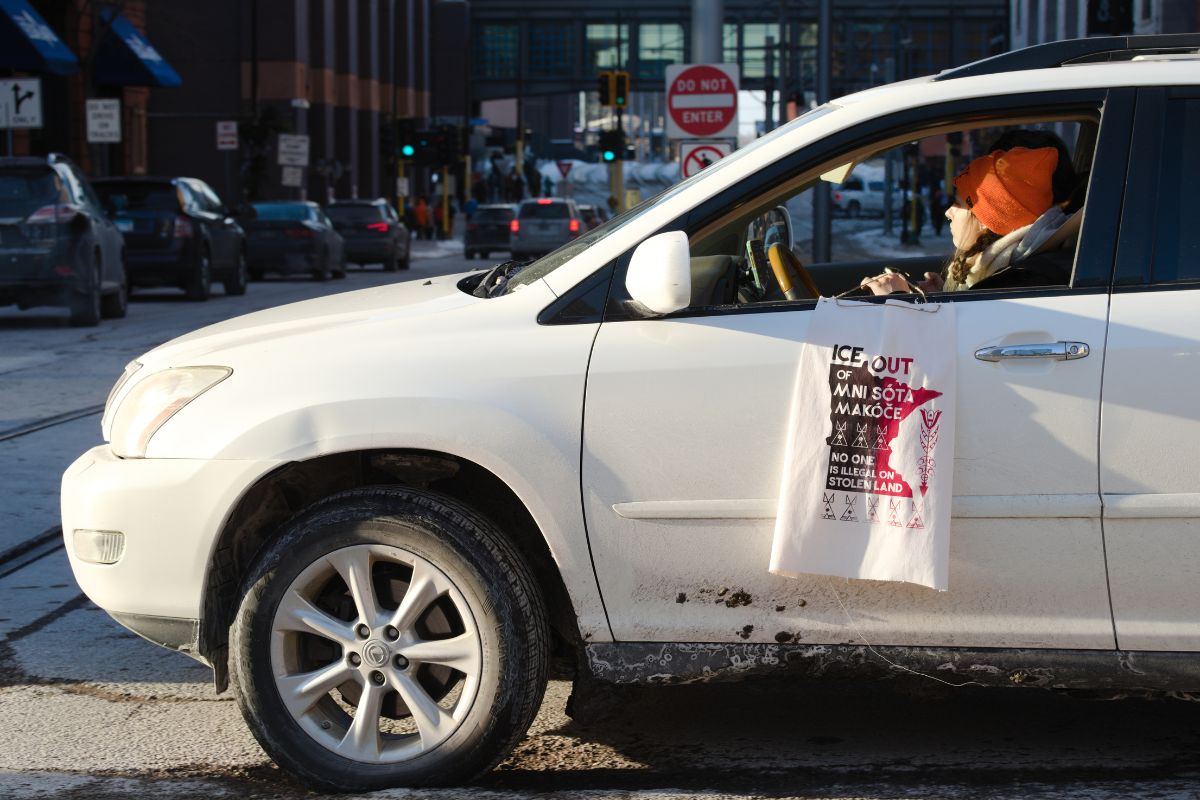
November 23, 2020; Time Magazine
As millions of Americans, ignoring all Centers for Disease Control and Prevention (CDC) warnings, board airplanes to visit their loved ones on Thanksgiving, it is worth remembering that for many the Thanksgiving holiday is a day of mourning.
Writing for Time Magazine, Olivia Waxman tells the story of Paula Peters, who was in second grade in the mid-1960s. As Peters was learning about Thanksgiving, a fellow student asked the teacher what happened to the members of the Wampanoag nation who participated in that famed 1621 harvest meal with the Pilgrims. The teacher told her students they were all dead.
“When she mentioned we’re all dead, that was devastating,” Peters, now 61, recalls. “I raised my hand, and I said, ‘No, that’s not true, I’m a Wampanoag, and I’m still here.’”
Peters, a member of the Mashpee Wampanoag nation and now a historian, has, with her son, helped to incorporate the Wampanoag perspective into events around the 400th anniversary of the Pilgrims’ landing in Provincetown. Five weeks after docking in Provincetown on November 11, 1620, at the edge of Cape Cod, they sailed to Patuxet, the Wampanoag name for the area that the colonists came to call Plymouth.
Waxman notes that, “Many Wampanoag hoped that the 400th anniversary of the Mayflower landing would be a galvanizing event to remind people that the Wampanoag still exist, but many of the commemorative events have been cancelled, postponed or moved online due to the COVID-19 pandemic.” She adds that the Wampanoag today face two major challenges: COVID-19 and the struggle to maintain control of their land.
In late March, at the height of the coronavirus pandemic, the US Department of the Interior challenged the Wampanoag nation’s claim to 321 acres of land in Mashpee and Taunton, Massachusetts. In June, a federal judge sided with the Wampanoag. But the matter is not resolved.
Sign up for our free newsletters
Subscribe to NPQ's newsletters to have our top stories delivered directly to your inbox.
By signing up, you agree to our privacy policy and terms of use, and to receive messages from NPQ and our partners.
Meanwhile, the Wampanoag are planning to host the 51st annual National Day of Mourning, which will be held, as usual, at Plymouth Rock. Waxman notes the gathering typically draws over 1,000 people, “but this year, organizers are encouraging people who don’t live nearby to watch the livestream to reduce the risk of spreading COVID-19,” which will take place on Thanksgiving Day at noon Eastern time.
Linda Coombs, 71, an Aquinnah Wampanoag museum educator who participated in the development of the Listening to Wampanoag Voices: Beyond 1620 exhibit hosted by the Peabody Museum of Archaeology and Ethnology at Harvard University, believes that it is important for the nation to look past the Thanksgiving myth and reckon with the violent history of genocide committed against so many American Indian nations.
“When the colonists came over in the 17th century, they had to get rid of us in one form or fashion or another whether it was converting us, moving us, annihilating us, or shipping us out of the country into slavery, and I just wish people knew that because this history is not yet well known, but that’s what it took for America to be what it is today and for people to sit down to have their Thanksgiving dinner,” Coombs says.
Certainly, the myths of Thanksgiving, even if widely acknowledged as outlandish, remain strong. That said, the efforts of people like Peters and Coombs and many others are having a real impact.
Speaking to Brett Anderson of the New York Times, Winona LaDuke, the Native American activist and writer who ran for vice president in 1996 and 2000 as Ralph Nader’s running mate, says that she believes the nation is primed to, as Anderson puts it, “re-envision Thanksgiving as an occasion to come to terms with the cruelty Native Americans have experienced throughout history.”
“I’ve seen a growing awareness, a wake-up, to the systemic oppression of people of color,” observes LaDuke, an enrolled member of the White Earth Ojibwe Nation. “There is a movement toward justice for Native people. People want to listen.”—Steve Dubb












